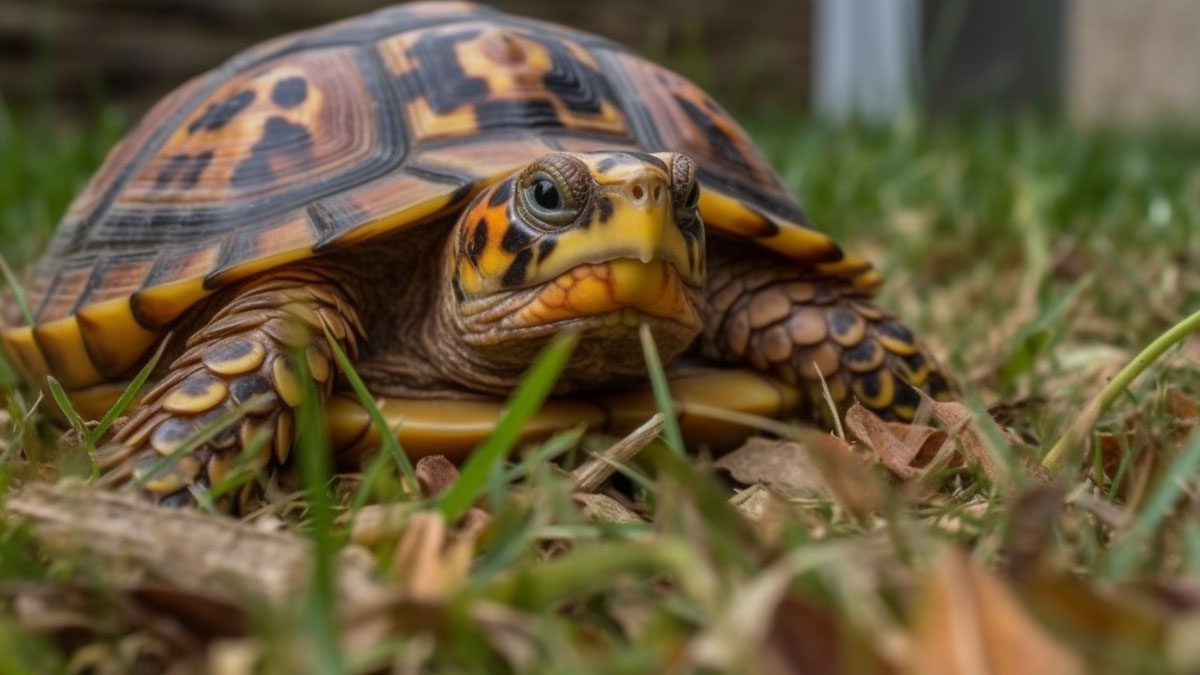What To Do With Infertile Turtle Eggs?
If your female turtle has laid eggs on its own, without mating with a male, then you already know that the egg is infertile. As such, it cannot turn into a baby turtle. So, what should you do with the eggs? This is what we will discuss in the article below.
What to do with infertile turtle eggs? The most obvious thing you can do with infertile turtle eggs is to throw them away. However, you can also choose to leave them in the ground nest to decompose and return nutrients to the soil. Alternatively, you can bury them in the ground or put them in a compost pit. You may also consider donating them to a wildlife center or zoo for education purposes.
In this article, we’ll discuss more about unfertilized turtle eggs. We will touch on related topics like whether you should incubate them, whether turtles can fertilize their eggs on their own, how turtle eggs become infertile, and more.
What to do with infertile turtle eggs?
Contents
If you have infertile turtle eggs, the truth is they’ll never hatch into little baby turtles. Therefore, you’d just want to throw them away. But is there anything else you can do with these eggs rather than throwing them away?
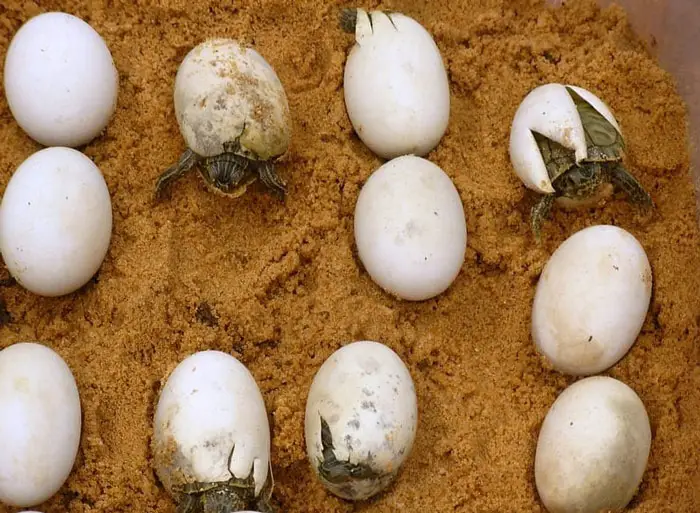
One of the things you can do with infertile eggs is to just leave them in the nest. This is especially true if the nest is in the ground.
This will enable them to decompose so that their nutrients can be absorbed into the soil. This is a natural way of disposing of your infertile turtle eggs.
If the eggs are in a nesting box, you can remove them, and dispose them of in a compost bin. Alternatively, you can bury them in the ground.
If you go with the latter option, make sure you bury them in a location where they won’t be disturbed.
Instead of throwing away the eggs, you may also consider giving them to your local zoo or wildlife center. Here, they can be preserved and used for educational purposes.
Can you eat unfertilized turtle eggs?
In some cultures, turtle eggs are considered a delicacy and are therefore safe to consume. This is quite understandable given that different countries and cultures have varying food preferences.
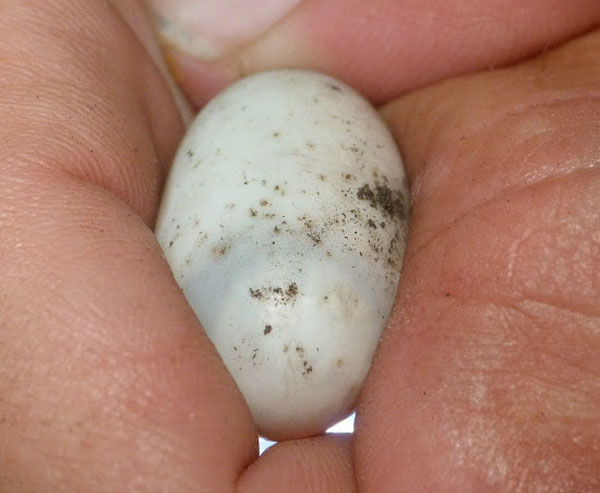
However, the consumption of turtle eggs may be unethical, and you may be exposing yourself to foodborne illnesses.
If you must eat the unfertilized eggs, then you may be safe as long as they don’t contain any developing embryos. However, make sure they’re fully cooked to reduce the risk of foodborne illnesses.
We came across this interesting story of a Japanese who cooked pond turtle eggs. In this post, he gives views on the cooking process and taste of this unusual food.
Should you still incubate infertile turtle eggs?
Trying to incubate infertile turtle eggs doesn’t make sense at all. There’s no need to do this as the fact remains—the eggs will NEVER hatch into baby turtles.
The incubation process is only necessary for fertile turtle eggs as they can potentially develop into baby turtles.
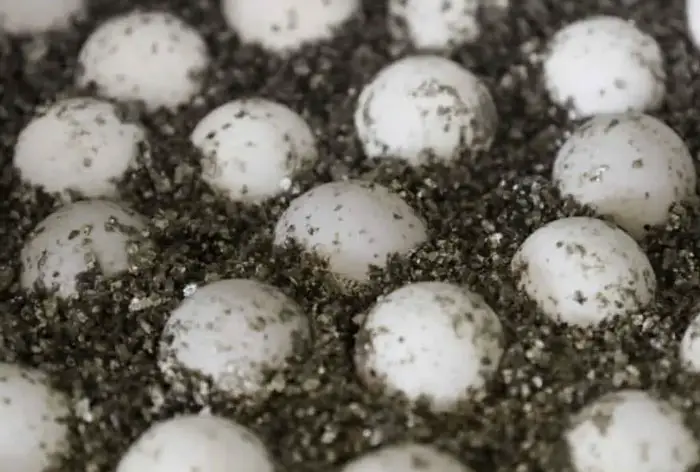
If you look at it, incubating infertile turtle eggs will just be a waste of time and resources since the eggs will not develop. Instead, they will end up decomposing.
Just focus your incubation effort and resources on fertile eggs and deal with the infertile eggs as we discussed earlier in this article.
How do you know if a turtle egg is fertile?
If you’re not sure whether your turtle eggs are fertile, you may want to first check them to ensure they’re indeed alive and healthy before you can dispose of them.
The most common method for checking if the eggs are fertile involves candling—this is where you shine a bright light through the eggs to see if there’s any developing embryo inside.
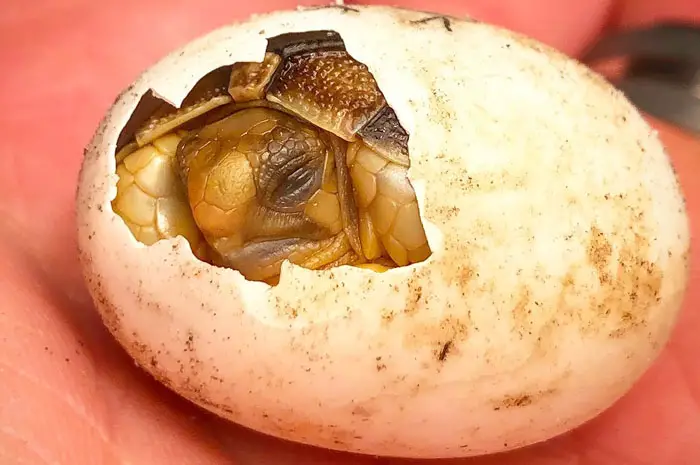
If the eggs are fertile, you should be able to see a network of veins plus a dark spot at the center that represents the developing embryo. Infertile eggs, on the other hand, appear clear.
Another way to tell if your turtle eggs are fertile is by checking their weight. Fertile eggs are slightly heavier than infertile ones. Fertile eggs also have a more symmetrical/uniform shape compared to infertile eggs.
Fertile eggs may also feature a rougher texture compared to fertile eggs, which may appear smoother.
Can turtles fertilize their own eggs?
No, turtles can’t fertilize eggs on their own. For the eggs to be fertilized, the fusion of sperm and egg from the male and female respectively must happen.
This occurs during mating, where the male deposits their sperm into the female turtle via cloaca.
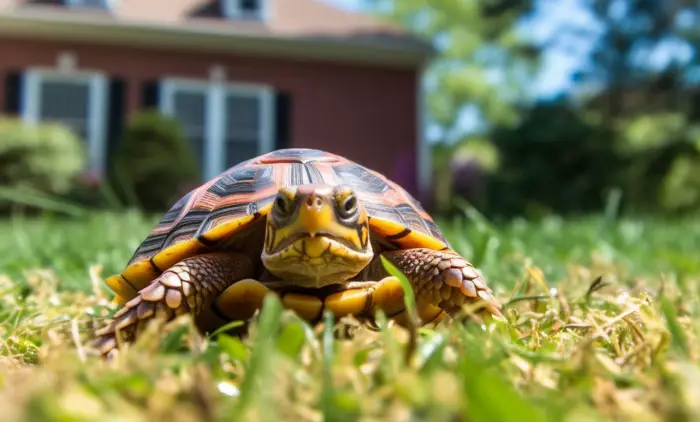
The sperms then travel up to oviduct and fertilize the female eggs, which then start developing internally until they’re ready for laying.
The fertilization process only happens if two turtles of opposite sexes mate to create fertile eggs.
Do turtles have unfertilized eggs?
Absolutely! Turtles can lay unfertilized eggs. This is especially true if the female lays eggs and it hasn’t mated with the male.
The resulting eggs will be unfertilized and cannot hatch into baby turtles. Keeping them is unnecessary, as they’ll eventually decompose.
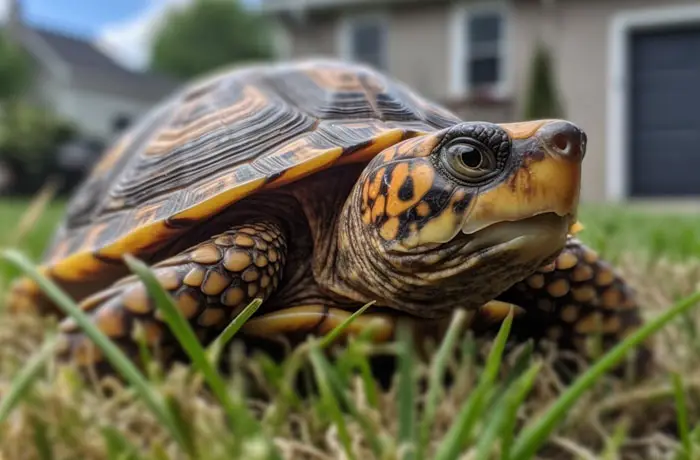
However, you should never be too quick to judge turtle eggs as infertile if it hasn’t recently mated with a male turtle.
Some turtles are known to store the male sperm for months and then use it to fertilize their multiple egg clutches. (Source).
By using the methods we discussed earlier, you can check if your turtle eggs are fertile before you decompose them.
This will ensure you don’t throw away fertile eggs that would have hatched into adorable baby turtles.
Conclusion
Infertile eggs are just that—unfertilized—and cannot amount to any development no matter what. We, therefore, advise you to dispose of them as incubating them will just be a waste of time and resources. You can simply throw away the unfertilized eggs or you can let them decompose in their ground nest and return nutrients to the soil. If you have the eggs in a nest, simply move them to a compost bin or bury them in the ground so they can decompose. You can also donate the eggs to your local wildlife center or zoo where they can be used for education purposes. Hopefully, now you have a clue about what to do with unfertilized turtle eggs.

